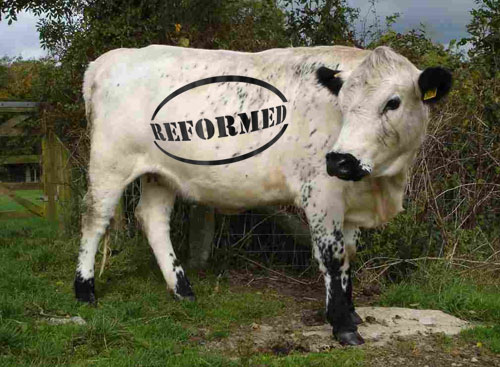
I’ve been meaning to write a post about the Reform Treaty and the Common Agricultural Policy for a while, but Richard Corbett MEP has beaten me to it. Richard has also written more on the Compass website. However I think it is worth looking at the issue of the Common Agricultural Policy and the Reform Treaty in more depth. Reform Treaty = Reform of the CAP could be a strong line to take for the UK government, but I suspect a lack of historical knowledge of the EU is the reason they are not making this argument.
First of all, what changes in the Reform Treaty? On the Council (i.e. Member States) side, agricultural policy will continue to be decided by Qualified Majority Vote for the policy decisions. However the Council will not be able to carry on deciding the CAP Budget in the same way as before – the European Parliament will be able to amend agriculture spending, a change from the current arranegements. Overall this should mean that opposition to CAP Reform from France, Finland and Ireland (among others) can more easily be overcome.
It’s a little more complex on the European Parliament side, and this is where I think the UK government needs to be more conscious of the history of European Integration when coming up with a viable line about agriculture in the Reform Treaty. If the Treaty is ratified, codecision will apply between Council and Parliament for agriculture policy. At the moment giving that power to the agriculture committee of the European Parliament might be seen as a bad move – the committee is full of MEPs from rural areas who want to be able to return home and tell the local farmers that they are standing up for their interests. As the EP has little power over agriculture policy, at present no urban or CAP-Reform minded MEP has much incentive to be a member of that Committee.
In the past when policy areas have become co-decided, the approach of the European Parliament has markedly changed. It ceases to just sound off, and takes its legislative role seriously, becoming a tough yet in the main reasonable partner for the Council. There is no reason to think why this would be any different when applied to agriculture policy. In short, give the European Parliament the responsibility and the EP’s behaviour will change, and it will be come more responsible and – I would argue – CAP-Reform minded.
In short, the Reform Treaty means better prospects for reform of the CAP. Now over to the UK government to start to say so…
[Thanks to the comment from Sebastian this entry has been corrected]








In the US, the Congress takes the lead in writing farm legislation and tends to be much more ‘producer captured’ than the Administration, as was the case for the current 2007 Farm Bill and its 2002 predecessor.
Democracy v. Bureaucracy? When it comes to deciding on large entitlement programmes, I think the balance of evidence is that legislatures are less worried about keeping costs under control.
Apologies. Was getting my QMV and budget changes mixed up. Corrections have now been made to the entry. Do you agree with the overall line though?
Under Article 37 EC Treaty, the Council already decides by qualified majority and has been doing so for quite some time
Thank you for a timely web column, when the budget review of 2008/9 has started and the Reform Treaty (Lisbon Treaty) agreed on by the heads of state and government.
On the other hand, the really binding framework is decided when the next financial framework (long term budget) and the so called own resources are hammered out for 2014 and the following five or seven years, still subject to unanimity and intergovernmentalism.
By the way, instant publication on the web of the consolidated Reform Treaty in all the official languages of the Union should be called for by every person interested in democratic debate.
Gosh! The CAP reformed and its money spent for boosting innovation, this would be really a revolution!